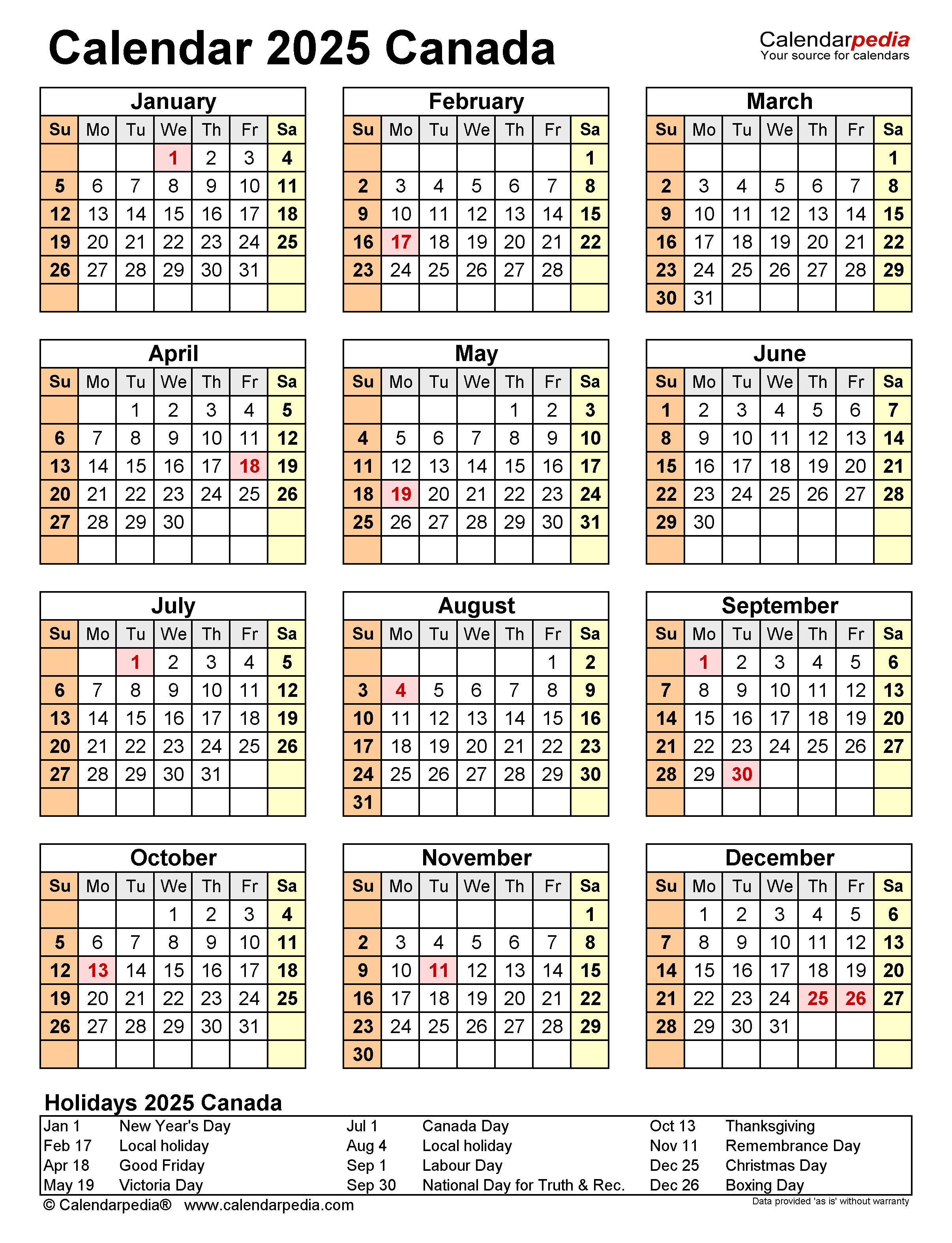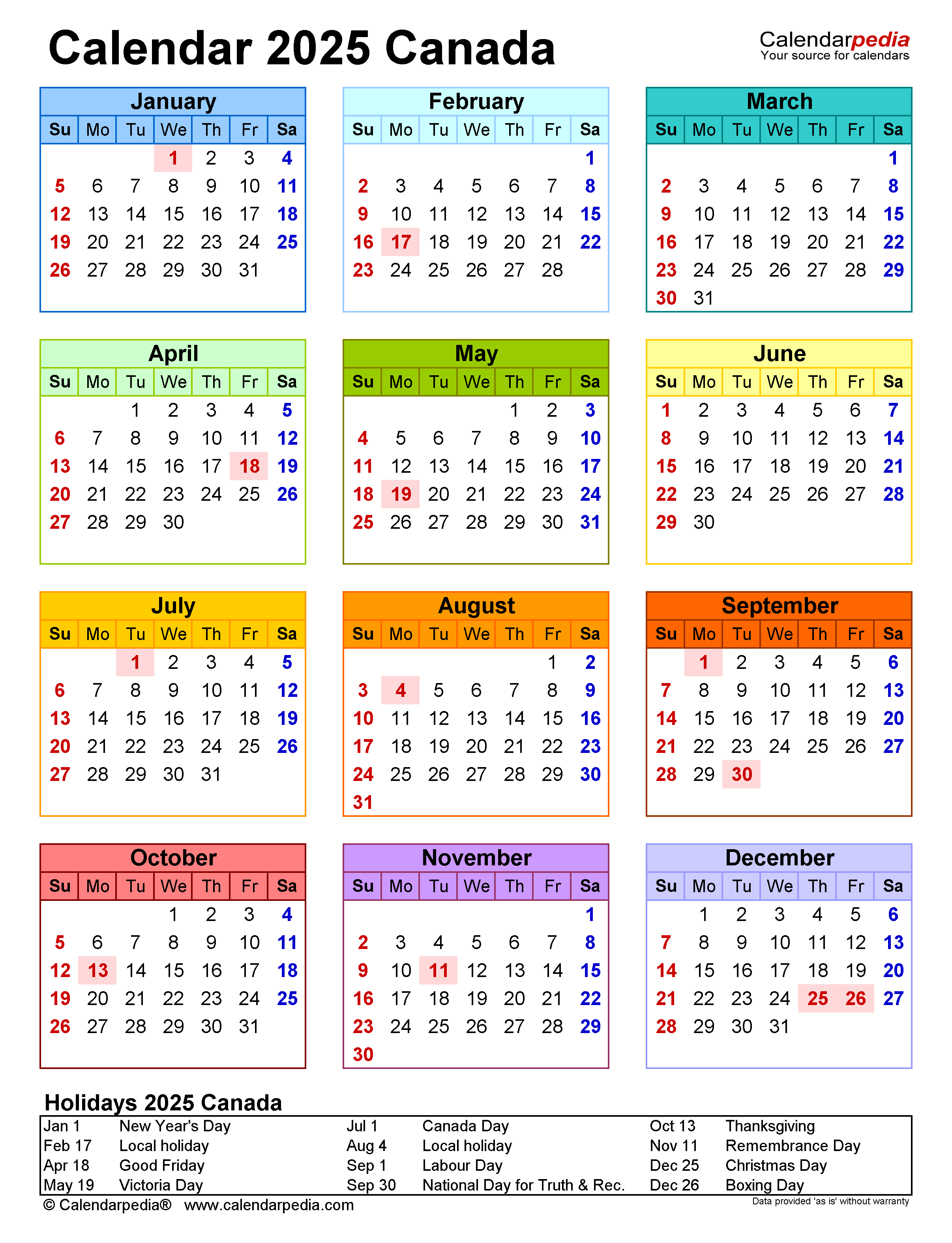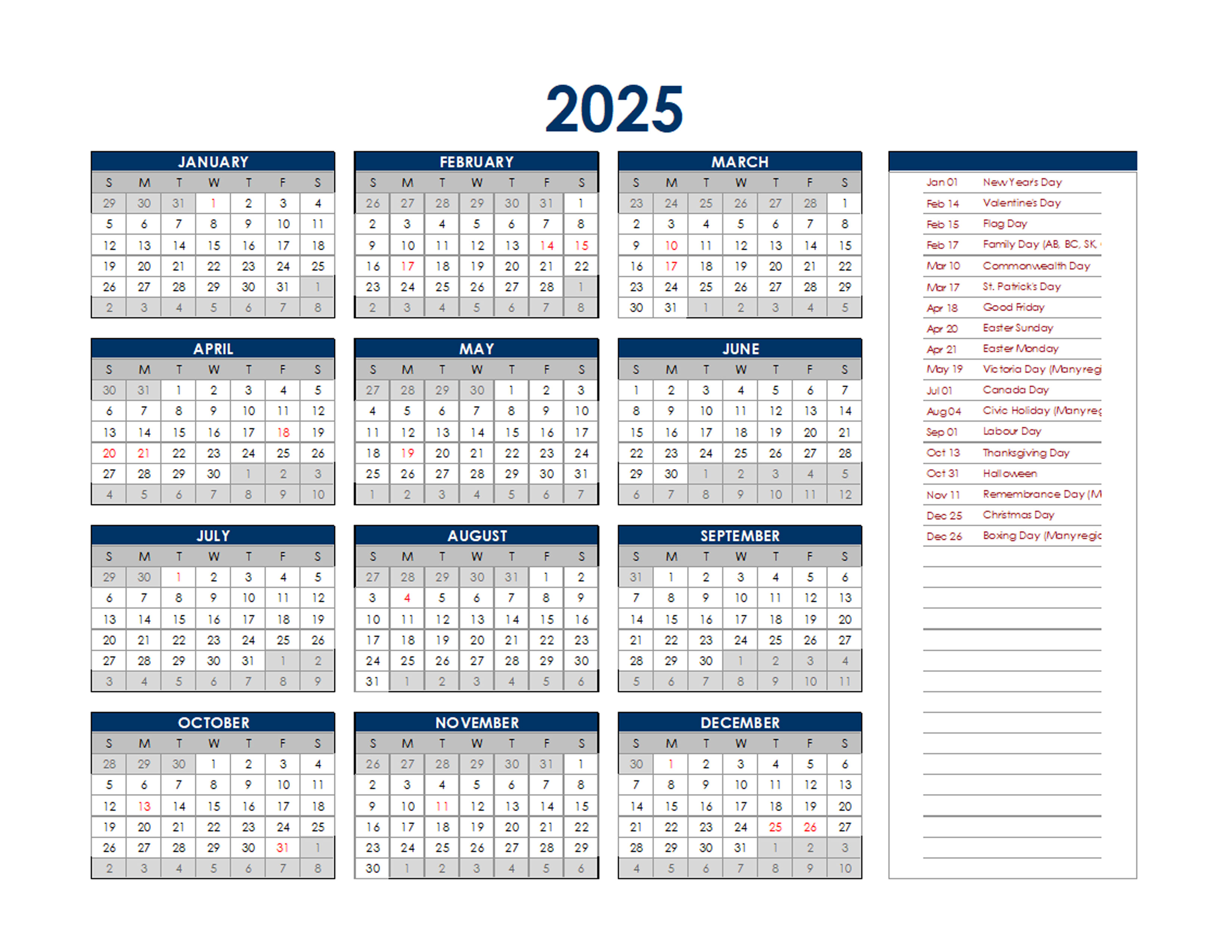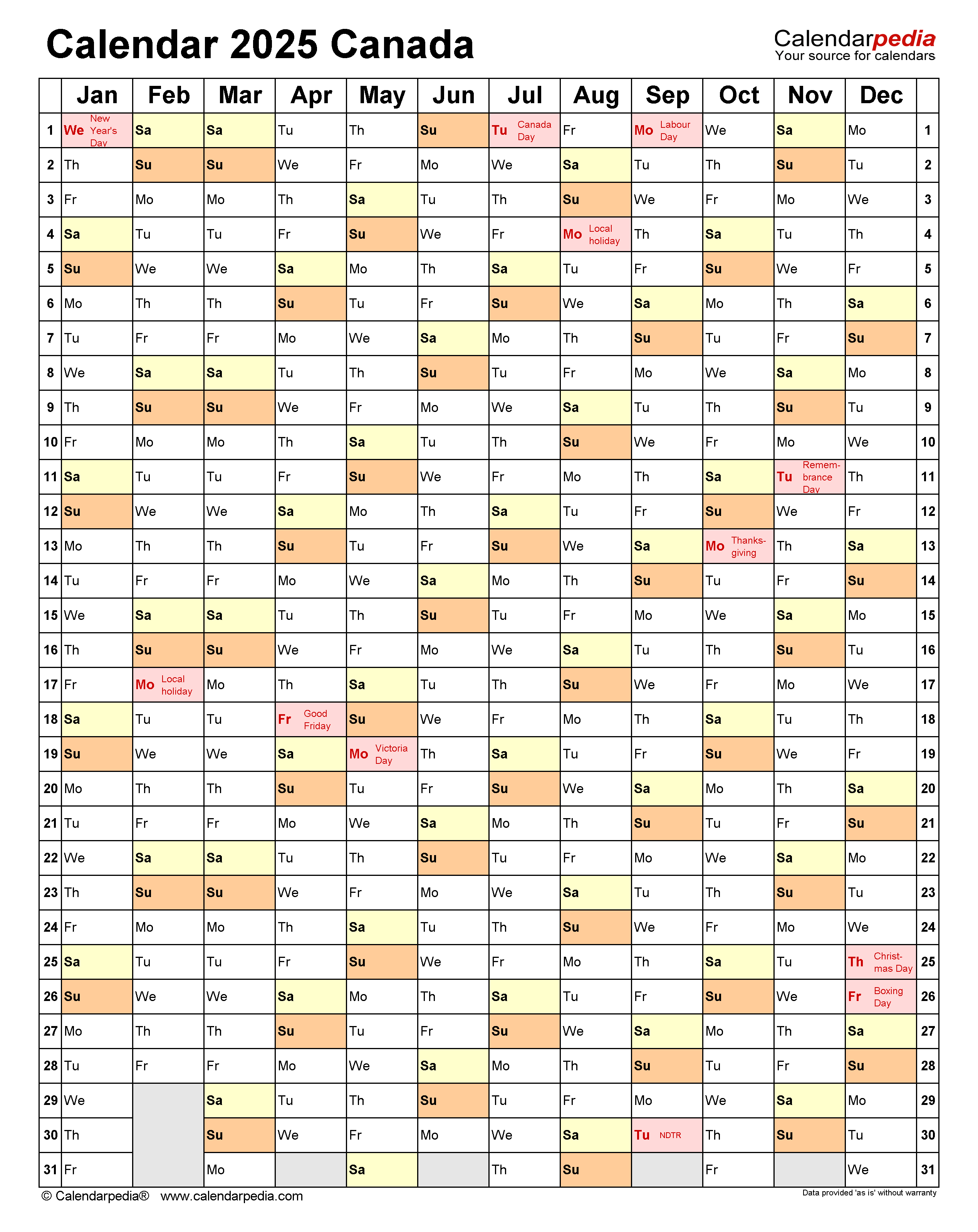Navigating the Canadian Holiday Landscape in 2025: A Comprehensive Guide
Related Articles: Navigating the Canadian Holiday Landscape in 2025: A Comprehensive Guide
Introduction
In this auspicious occasion, we are delighted to delve into the intriguing topic related to Navigating the Canadian Holiday Landscape in 2025: A Comprehensive Guide. Let’s weave interesting information and offer fresh perspectives to the readers.
Table of Content
Navigating the Canadian Holiday Landscape in 2025: A Comprehensive Guide

The Canadian holiday calendar is a dynamic entity, subject to adjustments and additions over time. While 2025 is still a few years away, understanding the current framework and potential shifts provides a valuable insight into the holiday landscape Canadians can anticipate.
Understanding the Foundation: Statutory Holidays
The core of the Canadian holiday calendar rests on statutory holidays, legally mandated days off work. These are determined by federal legislation and apply to employees across the country, although specific provincial regulations may also come into play.
Federal Statutory Holidays in 2023:
- New Year’s Day: January 1st
- Family Day: The third Monday of February (varies by province)
- Good Friday: April 7th
- Easter Monday: April 10th
- Victoria Day: The Monday preceding May 25th
- Canada Day: July 1st
- Civic Holiday: The first Monday of August (varies by province)
- Labour Day: The first Monday of September
- Thanksgiving Day: The second Monday of October
- Christmas Day: December 25th
- Boxing Day: December 26th
Potential Shifts in the Future
While these holidays are firmly established, future changes are always a possibility.
- National Indigenous Peoples Day (June 21st): Currently observed as a day of recognition and celebration, there is growing momentum for it to become a statutory holiday.
- Orange Shirt Day (September 30th): This day of remembrance for residential school survivors and their families holds significant cultural importance. Its potential elevation to statutory holiday status is a topic of ongoing discussion.
- Other Potential Additions: The government may consider adding holidays to commemorate specific events or individuals, reflecting evolving societal values and priorities.
Provincial and Territorial Variations
While federal holidays form the bedrock, provinces and territories have the authority to declare additional holidays. These may include:
- St. Patrick’s Day: Celebrated in Newfoundland and Labrador, Nova Scotia, and Prince Edward Island.
- National Heritage Day: Observed in Manitoba and Saskatchewan.
- Queen’s Birthday: Celebrated in Ontario and British Columbia.
- Other Regional Holidays: Each province and territory may have unique holidays commemorating local events or historical figures.
Navigating the Holiday Calendar: Practical Considerations
Understanding the holiday calendar is crucial for individuals, businesses, and organizations.
- Planning: Knowing holiday dates allows for effective planning of events, travel, and work schedules.
- Business Operations: Businesses must factor in holiday closures and potential staffing challenges.
- Employee Benefits: Understanding holiday entitlements is crucial for employers to ensure compliance with labor laws.
- Travel and Leisure: Individuals can plan vacations and leisure activities around holiday periods.
Frequently Asked Questions
Q: What are the legal implications of statutory holidays?
A: Statutory holidays are legally mandated days off work. Employers are required to provide paid time off to employees on these days, and employees are entitled to refuse work without penalty.
Q: Are there any exceptions to statutory holiday observance?
A: Some industries, such as healthcare and emergency services, may have exemptions. Employees may also be required to work on statutory holidays under specific circumstances, such as in cases of emergencies or essential services.
Q: How are statutory holidays treated in provinces and territories?
A: While federal holidays are observed nationwide, provinces and territories may have their own additional holidays. It is essential to consult specific provincial regulations for accurate information.
Tips for Navigating the Holiday Calendar
- Stay Informed: Regularly check official government websites and news sources for updates on holiday dates and any potential changes.
- Plan Ahead: Anticipate holiday closures and adjust schedules accordingly.
- Communicate Effectively: Maintain clear communication with colleagues, clients, and stakeholders regarding holiday plans and operations.
- Respect Cultural Differences: Be mindful of diverse cultural practices and traditions associated with holidays.
Conclusion
The Canadian holiday calendar is a dynamic landscape, reflecting the country’s diverse cultural tapestry and evolving societal values. Understanding the statutory holidays, potential future changes, and provincial variations is crucial for individuals, businesses, and organizations to navigate the holiday season effectively. By staying informed, planning ahead, and respecting cultural differences, Canadians can enjoy the benefits of these special days while ensuring smooth operations and a harmonious holiday experience.








Closure
Thus, we hope this article has provided valuable insights into Navigating the Canadian Holiday Landscape in 2025: A Comprehensive Guide. We thank you for taking the time to read this article. See you in our next article!